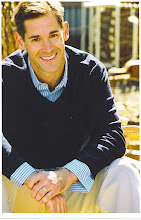
Less than 12 hours after the 9/11 attacks, George W. Bush proclaimed the start of a global war on terror. Ever since, there has been a vigorous debate about how to win it. Bush and his supporters stress the need to go on the offensive against terrorists, deploy U.S. military force, promote democracy in the Middle East, and give the commander in chief expansive wartime powers. His critics either challenge the very notion of a "war on terror" or focus on the need to fight it differently. Most leading Democrats accept the need to use force in some cases but argue that success will come through reestablishing the United States' moral authority and ideological appeal, conducting more and smarter diplomacy, and intensifying cooperation with key allies. They argue that Bush's approach to the war on terror has created more terrorists than it has eliminated -- and that it will continue to do so unless the United States radically changes course.
Almost entirely missing from this debate is a concept of what "victory" in the war on terror would actually look like. The traditional notion of winning a war is fairly clear: defeating an enemy on the battlefield and forcing it to accept political terms. But what does victory -- or defeat -- mean in a war on terror? Will this kind of war ever end? How long will it take? Would we see victory coming? Would we recognize it when it came? Continue to read Philip Gordon of the Brookings Institute, @ Foreign Affairs

